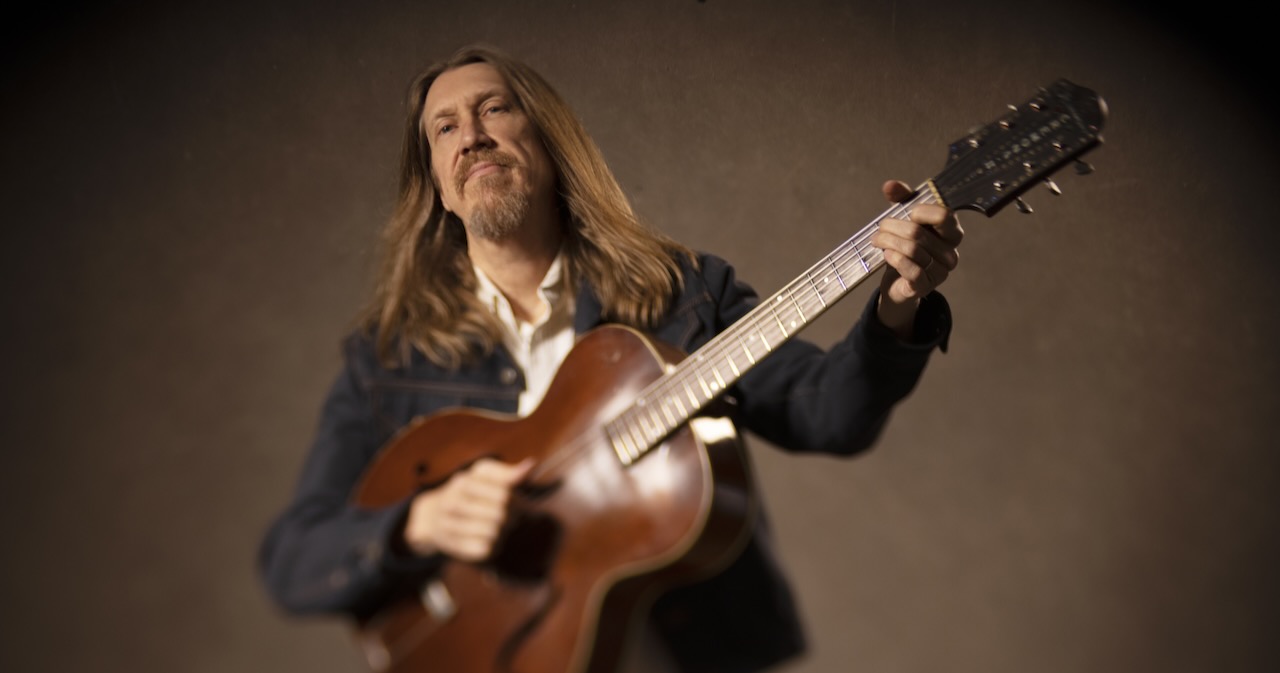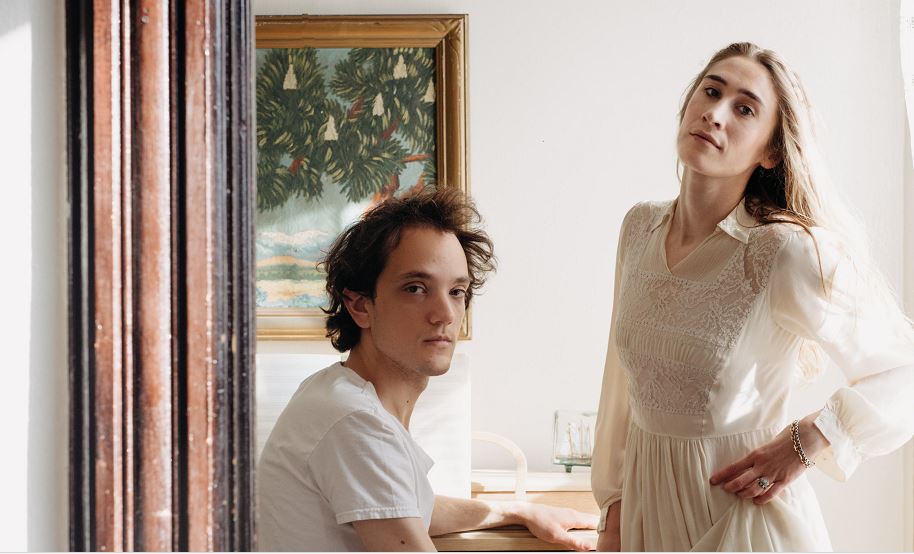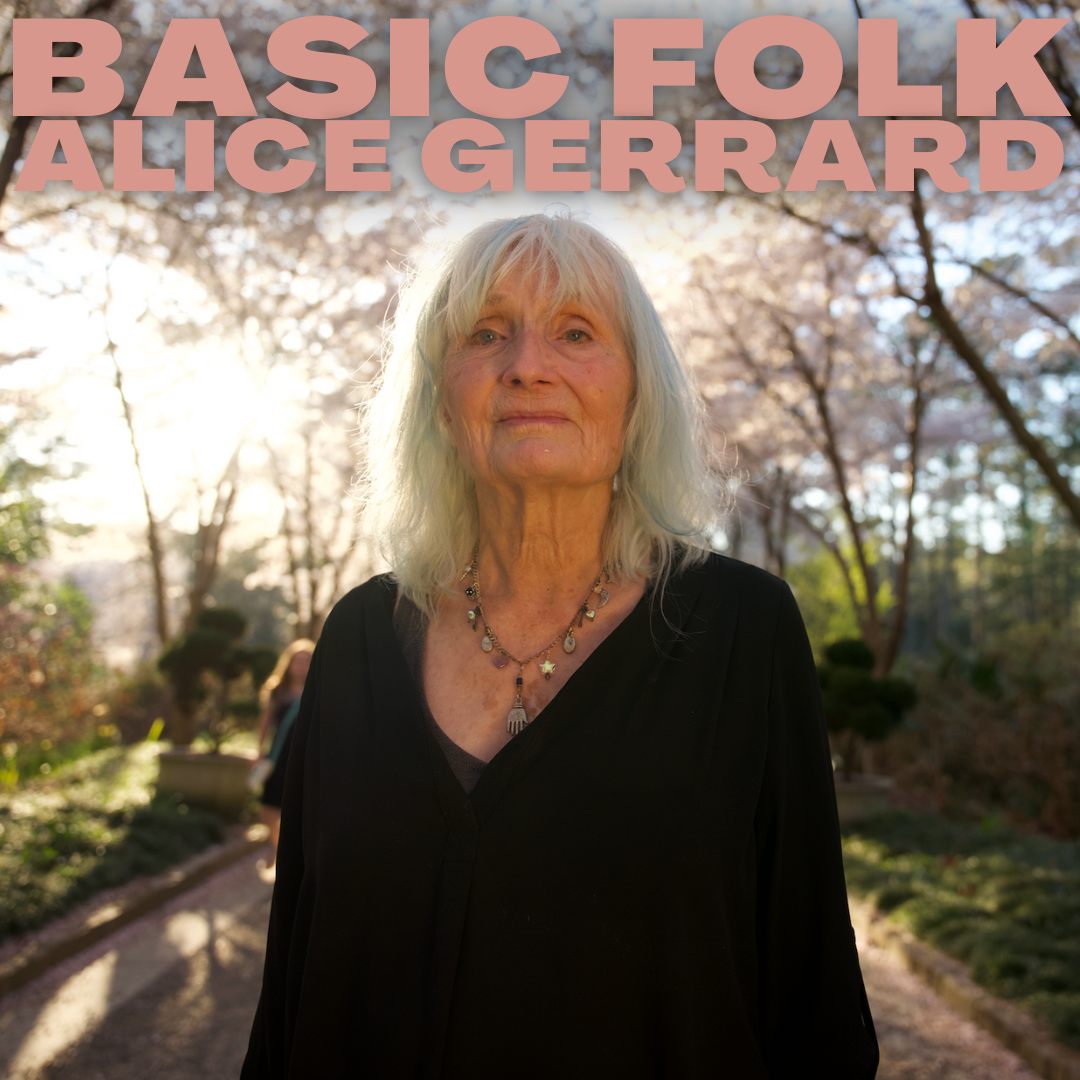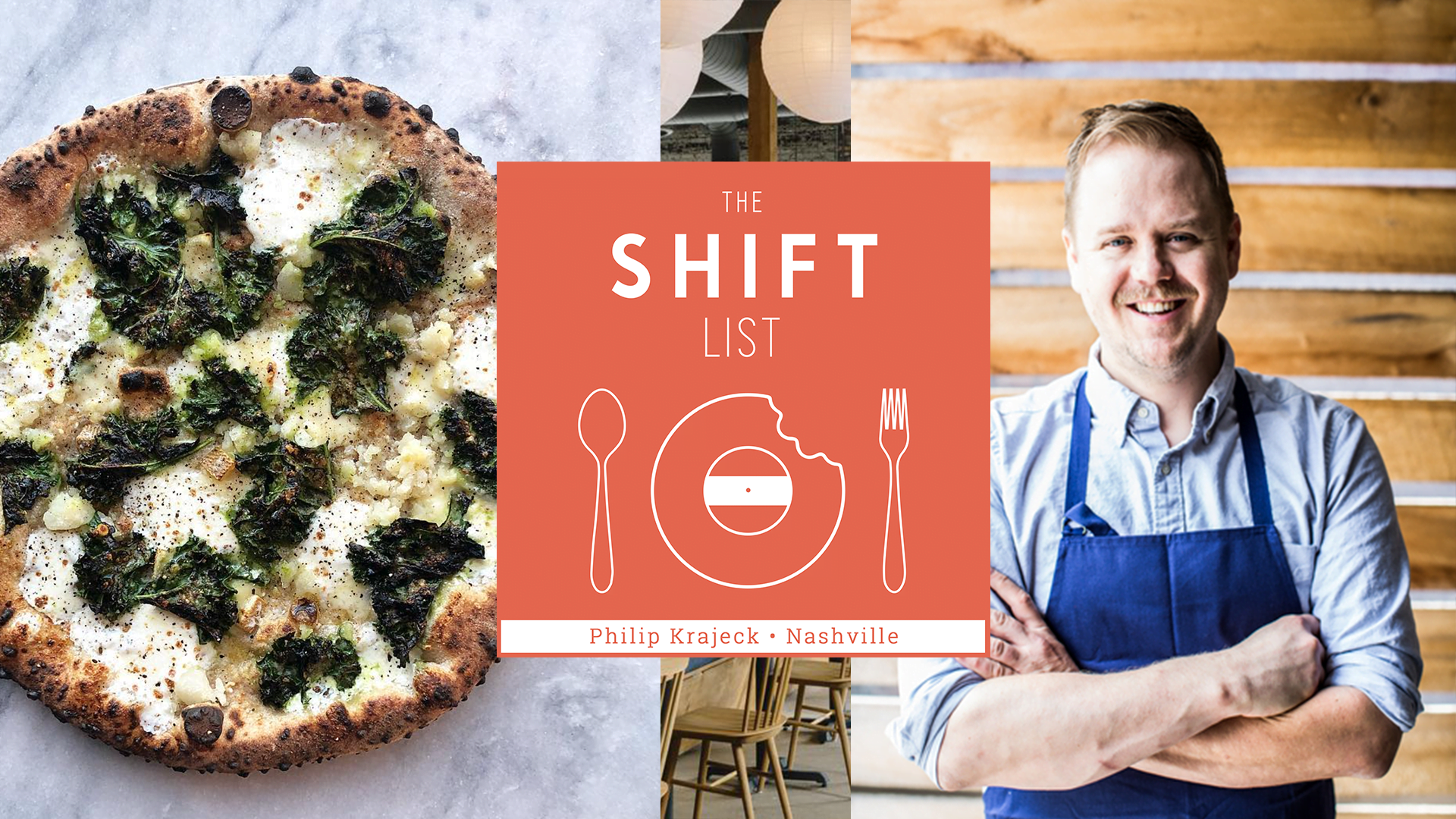As the frontman/guitarist of The Wood Brothers, Oliver Wood is well versed in the art of roots experimentalism, but even that genre-blurring trio can’t satisfy all of his curiosity. With his second solo album, Fat Cat Silhouette (out now), the singer-songwriter set out to reach a new creative plane of existence.
Featuring nine playful, untethered tracks exploring pure sonic adventurism, the set became a case study in songwriting for songwriting’s sake; it’s a joyful mix of folk, jazz and free form pop. Recorded analog to tape by Wood Brothers percussion polymath Jano Rix, it features guest appearances by Katie Pruitt and Los Lobos saxophonist Steve Berlin, and some of the most irreverent, open-minded musical journeys ever taken. Each day, Wood would wake up, grab a coffee and sit down in a comfy chair, looking out the window to write whatever crossed his mind. The result was musical mood-shift, just a refreshing as it is insightful.
Ahead of another Wood Brothers tour, BGS talked with the artist about clearing his creative mind and getting “weird.”
It seems like you were purposely expanding your horizons on this second solo record, right? Why did you want to open up the floodgates?
Oliver Wood: I don’t know, it just felt like time to do that and time to experiment. … The Wood Brothers, we put out an album last spring and when we were done, I guess I was just still writing tunes. But also, I’ve always just liked in the last few years to make it a point to collaborate with some people outside of the band. And then production-wise, I felt like we’ve just done this album with The Wood Brothers a certain way, and a lot of times we react as artists and as writers. You sort of react to what you did before, and you try to be different, even though there’s not necessarily an exact sound in mind. It’s like, “What can we do that’s weirder?”
I love that idea of being a little weird, because why not, right? But the funny thing is that as a band, The Wood Brothers does not exactly seem limiting in terms of creativity.
No not at all.
So was there just still more in you, that had to get out creatively, or what?
I think so, yeah. And I’m sure there’s a subconscious part of me that wants to figure out what is my musical identity. I know what it is within The Wood Brothers. That’s sort of our bread and butter, but when I do my own thing, I feel like I can do whatever I want. … Maybe nobody will even hear it, so why don’t I just do get as weird as I want to get?
In the album bio, you talk about practicing songwriting without self-judgment and I think that’s a cool idea. Can you explain what that is to you and how you go about getting there?
Yeah. I think that is, first of all, almost impossible. However, maybe putting myself in a frame of mind that I was under less pressure to make something that people would like helps get there. It’s all subconscious, but when we’re with The Wood Brothers, even though we’re not trying to please anybody but ourselves, we do have to make our living, so in the back of our heads it’s like, “Oh, this song will sound good at Red Rocks or the Ryman Auditorium.” In other words, “People are going to love this.” I can’t help but think that in the back of my mind probably. But as far as writing without judgment and what that looks like? I think it looks like trust. I think it looks trusting that oftentimes your first instincts are right.
You don’t have to fix something or change something. You can trust that your soul and realness is going to come out if you just let it, and you write something down or play something, rather than going over it and editing it. I feel like I did that a lot with lyrics on this record. I wrote some things and I was like, “That doesn’t make any sense.” I caught myself thinking that, and then I was like, “Screw it. I trust that that’s what my subconscious told me to write. And it’s real.” I don’t think you really have to try to do that. In fact, the more you try, the less authentic it might be.
What came out is these nine tracks that to me are really playful and enthusiastic. What do you like about where the sound went? You definitely took some leaps.
Well, I talked with [album producer and fellow Wood Brothers member] Jano a lot about maybe being a little bit less on the drum set side, a little more on the percussion side. He is my favorite drummer ever, but sometimes I get tired of drum sets. I mean I love classic rock ‘n’ roll and R&B drums, all that stuff. But sometimes when you think about it, it sounds like everything else. So it was like “What if we didn’t have that?” There was one point where it’s like, “Jano, why don’t you do that percussion part vocally?” With the song “Whom I Adore,” not only did he play the Sitar and the tambourine, but he also did this weird shaker part with his mouth. Sometimes when you avoid one thing, you have to innovate to replace it with something else. And that was kind of the idea.
I use this really dull, rubber-bridge guitar on a lot of the songs, so there’s some more atypical guitar sounds. And of course, Steve Berlin and the bari-sax was a really cool thing. There was one section where we were wishing we had a horn section and instead Jano and I just sang all the parts. That was for “Star In the Corner,” and we just sang them like idiots – like fake opera singers! It’s kind of silly, but it was like, “That’s cool. And we haven’t done that before.”
That to me was the way to go to be non-judgmental, to be like you called it, playful. Sometimes you feel like you can control something and make it just perfect. But the opposite of that is letting go and trusting that if you try something, it may or may not turn you on, but when it works, it’ll surprise you and delight you. And that’s so much more fun than trying to control something and never quite being happy.
Tell me about the track “Little Worries.” This contains the album title, Fat Cat Silhouette, which is so fun. How does that song speak to the project overall?
Some of the themes, I feel like bloomed from that song. I have a ritual where I’ll go downstairs in the morning and have a cup of coffee in this armchair, which is right by a window facing my front yard. And I usually go down there and I write and sometimes I just write in a notebook, just sort of freeform. Sometimes it’s working on a song, but it’s wide open and several of these songs kind of started that way.
The idea of the Fat Cat Silhouette was really just an actual thing. I’m sitting there in that chair with my cup of coffee and I have these semi-transparent sheer curtains, and there’s a cat sitting there looking out the window. Sometimes for me – and I’m pretty sure for a lot of other songwriters – you don’t know what you’re going to write about, but you may see something that gets you started. And so the beginning of that song is literally me describing sitting in the chair with my cup of coffee and there’s a fat cat silhouette in the window.
That sort of observation, oftentimes if you write it down, can lead to a story. The first song on the album, “Light and Sweet,” happened the same way, sitting in the same spot looking out the window and there’s a sparrow. I started the song and then I started fantasizing. He’s on the phone with his lawyer talking about his divorce with his soon to be ex-wife.
[Laughs] You don’t hear many songs about bird law.
Exactly! But with the “Little Worries” song, I think writing that song and writing in general every morning is a good way for me to deal with anxieties and overthinking things. And that kind of turned out to be what that song was about.
How about “Yo I Surrender.” This is another track about giving up control, but also I think the most fun on the record. I love how you said it has the worst guitar sound ever. Why does that work for you?
That’s one that Jano and me and [bassist] Ted [Pecchio] were warming up one day, and we just started playing that groove. We just had fun playing that groove and I saved it on my phone, and then Steve Berlin from Los Lobos was in town with his bari-sax, and we invited him to come into the studio, help us finish writing that song. So the four of us sort of arranged the music and parallel to that, I was starting to think about the lyrics. I was also reading some cool books that were giving me some cool vocabulary words that I was like, “I just want to use that word. I don’t even care if it fits. I don’t even care if it makes sense.” It was definitely one of those things where it was musically such a group effort, and then lyrically one of those things – let it be weird, let it be ambiguous. I think some of my favorite songs that I’ve heard over the years are always a little bit ambiguous.
Photo Credit: Alysse Gafkjen






